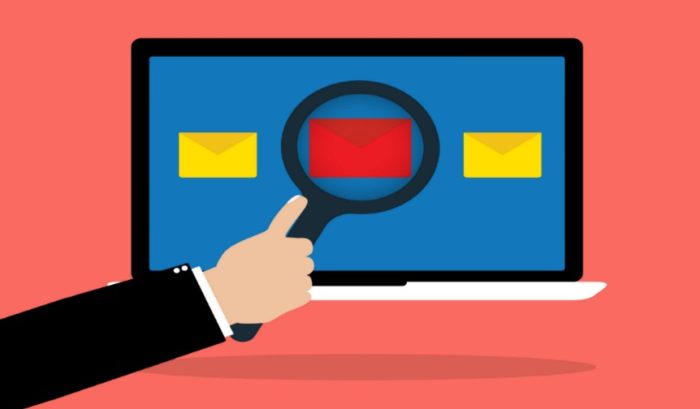Scams aren’t a new concept, but they’ve affected more places in recent years. Thanks to our more modern, technology-based age and penchant for social media, we see more scam calls and emails than ever before.
Scammers will tell you anything to get money from you, including fake job offers, prizes or late bills.
You need to know how to recognize a scam before you get trapped in something that could ruin your finances. Once you know what you’re looking for, most scams are obvious. A big problem comes in when even the legitimate companies look like scams, too.
For now, let’s cover seven big warning signs to tell if an agency isn’t all it claims.
1. The Message Is Worded to Incite Panic
A lot of scammers like to prey on fear. When you’re told that you have an ultimatum with some vague threats, the message is probably a fake.
These are extortionists that want you to make a split-second decision before you can think through the situation, leaving you to give away all your assets before you realize what’s going on.
2. The Email Address Is Wrong
Most phishing emails will look they’re from a company you know and trust. In these cases, the email address will give the scheme away.
If the address doesn’t look authentic or has strange characters, don’t fall for it. If you’re uncertain, go to the actual company’s website by any way other than the email and ask customer service directly.
3. You’ve Won Something
If something sounds too good to be true, it probably is. If you randomly win something in a contest you didn’t enter, it’s highly possible this is another phishing scheme.
You’ll realize quickly if they ask you to pay a fee to claim your prize or if they ask you for your banking or personal information. No actual contest will make you pay to accept your prize. There are plenty of lottery-esque scams out there, but also just as many ways to protect yourself from foul play.
4. The Message Is Poorly Written
Sometimes, you’ll receive a message that may otherwise look legitimate but contains spelling and grammar errors. A legitimate company hires people competent enough to create a formal message without any errors.
Poor writing is a strong indicator that you’re dealing with a scam and could be a clue for you to check other suspicious problems with the message.
5. Strange Attachments
Because a lot of scammers and phishing messages use attachments to install viruses on computers, companies have almost stopped using them completely.
If you’re asked to click on an attachment in an email you weren’t expecting, double and triple check to verify the source first. You can also get antivirus software to scan attachments in emails before opening them to test the legitimacy.
6. The Message Doesn’t Use Your Name
If the company is legitimate and one you already do business with, then your name will appear somewhere in the message.
If the email has some generic term like “valued customer” or “account holder,” then it’s possible the email is a fraud and gives you a reason to check for other signs. However, not all emails with your name attached will be legitimate, but not having your name can be a dead giveaway.
7. The Whole Message Is a Link
The virus or malware is typically not inside the email itself. You usually have to click on something in the email, like a link or attachment, to get your computer infected. Scammers fix this problem by making the entire message one big link.
If you click anywhere in the message, then you automatically transport to their site where your computer gets hit by malware. This is an unfortunate situation but one you can predict as no legitimate company will write their emails this way.
Protecting Yourself
Your email’s spam filter already works hard to keep you from seeing these messages but some slip through. Having antivirus software installed on your computer, and protecting your information by keeping everything backed up on a hard drive, are a few ways to protect yourself from a serious situation.
If you can’t tell the legitimacy of a message, get in touch with the company through other means to check the source.
You can report a known phishing attack at the Federal Trade Commission’s website to ensure no one else falls victim to the same mistakes. If you think you already responded to a phishing email, though, you can update your computer’s security and check on your personal information to see if any activity has occurred.
Having extra security in place for things like a bank account can help a lot. Either way, keep calm and think before you act just in case there’s something wrong afoot.

buy generic viagra online buy viagra viagra amazon
mail order viagra viagra for sale viagra without a doctor prescription usa
cialis without doctor prescription cialis 200mg canadian cialis
generic for viagra viagra without a doctor prescription when will viagra be generic
ed dysfunction treatment ed drugs compared buy prescription drugs
viagra walgreens generic viagra online viagra professional
men with ed
viagra without a doctor prescription usa generic viagra cheap viagra 100mg
prescription drugs without doctor approval
generic viagra india viagra viagra cialis
pet meds without vet prescription
cialis for daily use buy cialis free cialis medication for providers
cialis tolerance tadalafil cialis ingredient
ed drug prices ed pills online pharmacy male ed
medication online
buy ed pills online buy generic ed pills online buy prescription drugs online without
is it illegal to buy prescription drugs online
generic for zantac zantac prices
order amoxicillin 500mg buying amoxicillin in mexico
zithromax prescription online buy zithromax 1000mg online
cheap generic sildenafil sildenafil for sale